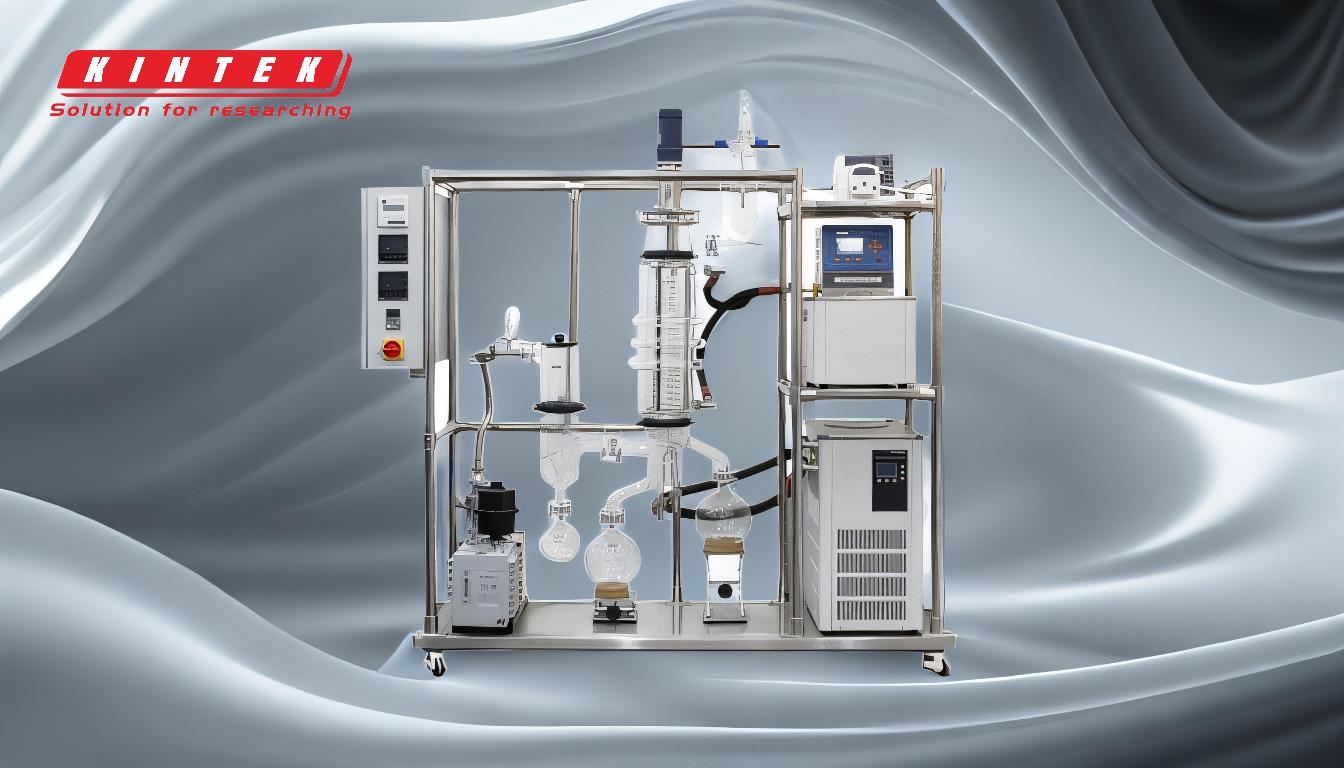Distillation under reduced pressure, also known as vacuum distillation, is a technique used to lower the boiling points of substances, enabling distillation at milder temperatures. This is particularly beneficial for heat-sensitive compounds that may decompose or degrade at higher temperatures. By reducing the pressure, the boiling point of a substance is lowered, allowing for efficient separation without thermal damage. Additionally, in molecular distillation, reduced pressure ensures that the boiling point depends solely on the molecular weight of the substance, eliminating back-pressure and enhancing separation efficiency. This method is widely used in industries such as pharmaceuticals, essential oils, and chemical manufacturing to achieve high-purity products.
Key Points Explained:

-
Lower Boiling Points at Reduced Pressure:
- When pressure is reduced, the boiling point of a substance decreases. This is because boiling occurs when the vapor pressure of a liquid equals the external pressure. By lowering the external pressure (using a vacuum pump), the liquid can boil at a much lower temperature.
- Example: Water boils at 100°C at atmospheric pressure (1 atm), but under a vacuum of 0.1 atm, it boils at approximately 46°C.
-
Protection of Heat-Sensitive Substances:
- Many organic compounds, pharmaceuticals, and essential oils are heat-sensitive and can degrade or decompose at high temperatures. Vacuum distillation allows these substances to be distilled at lower temperatures, preserving their integrity and preventing thermal degradation.
- Example: Vitamin E, a heat-sensitive compound, can be distilled under reduced pressure to avoid decomposition.
-
Enhanced Separation Efficiency:
- In molecular distillation, reducing pressure eliminates back-pressure, which can interfere with the separation process. This ensures that the boiling point is determined solely by the molecular weight of the substance, leading to more precise and efficient separation.
- Example: High-purity fatty acids can be separated more effectively using vacuum distillation compared to traditional methods.
-
Applications in Various Industries:
- Pharmaceuticals: Used to purify heat-sensitive drugs and active pharmaceutical ingredients (APIs).
- Essential Oils: Preserves the delicate aromatic compounds in essential oils.
- Chemical Manufacturing: Enables the distillation of high-boiling-point chemicals without thermal decomposition.
-
Equipment Considerations:
- Vacuum Pump: Essential for creating and maintaining the reduced pressure environment.
- Condenser: Must be efficient enough to handle the lower temperatures and prevent re-evaporation of the distillate.
- Still Design: Should be robust and leak-proof to maintain the vacuum and ensure consistent performance.
-
Energy Efficiency:
- Operating at lower temperatures reduces energy consumption, making vacuum distillation a more energy-efficient process compared to traditional distillation methods.
-
Challenges and Limitations:
- Cost: Vacuum distillation equipment can be expensive due to the need for specialized components like vacuum pumps and condensers.
- Complexity: The process requires careful control of pressure and temperature, which can increase operational complexity.
- Safety: Handling vacuum systems requires proper training to avoid accidents, such as implosions or exposure to hazardous substances.
By understanding these key points, a purchaser can make informed decisions about implementing vacuum distillation in their processes, ensuring optimal results while minimizing risks and costs.
Summary Table:
| Key Aspect | Details |
|---|---|
| Lower Boiling Points | Reduces boiling points by lowering external pressure (e.g., water boils at 46°C at 0.1 atm). |
| Heat-Sensitive Protection | Preserves integrity of compounds like Vitamin E by avoiding high temperatures. |
| Enhanced Separation | Eliminates back-pressure, ensuring precise separation based on molecular weight. |
| Applications | Pharmaceuticals, essential oils, and chemical manufacturing. |
| Equipment | Requires vacuum pumps, efficient condensers, and robust still designs. |
| Energy Efficiency | Operates at lower temperatures, reducing energy consumption. |
| Challenges | High costs, operational complexity, and safety considerations. |
Optimize your distillation process with vacuum distillation—contact our experts today for tailored solutions!










